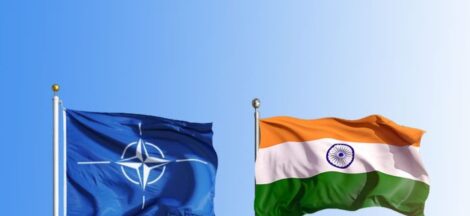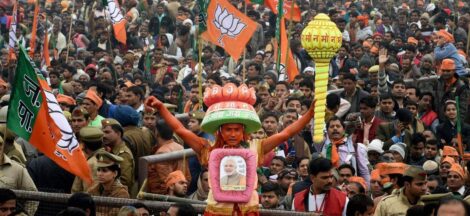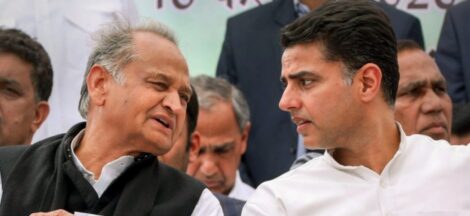By K Raveendran
The
recommendation by a Supreme Court bench headed by Chief Justice Ranjan Gogoi to
relax the criteria for appointment of members of the SC-ST as judicial
officers, if implemented, will amount to another step in making India a Quota
Republic. The recent constitutional amendment to provide for 10 percent
reservation for economically backward sections of the forward castes, though a
welcome move, has already muddled the waters, with more demands for such
reservation being raised from various quarters and a slew of petitions
challenging reservation based on economic criteria in the Supreme Court.
The
recommendation by the three-member bench to relax the criteria for SC-ST judges
in the subordinate judiciary was made after the Kerala high court reported to
the apex court that it could not find a single candidate from the reserved
category crossing the threshold of minimum percentage marks for appointment as
judicial officers in trial courts. The minimum qualifying marks were fixed as
35 percent for the preliminary round and 40 percent for the main examination,
but only three candidates qualified for the interview while not a single
candidate was found suitable for appointment.
The
CJI-headed bench then advised high courts to relax the minimum percentage of
marks, “maybe from 35 per cent to 30 per cent”. “For reserved
category, HCs can relax minimum percentage of qualifying marks to give them
representation in judiciary. Otherwise, reserved category candidates can never
pass the examination and the posts earmarked for them will always remain
vacant,” Justice Gogoi said, pointing out that minimum marks were being relaxed
for reserved category candidates in examinations for recruitment to other
services.
There
have been vociferous demands from the backward classes for more representation
for them in the judiciary as they feel there is an inherent bias against them
when matters come before courts. The brouhaha over the SC-ST Atrocities Act
provisions being struck down has still not died down. There is no doubt that
the proportion of SC-STs in the judiciary is less than their share of the
population as the capability to serve as judicial officers among members of
these classes often commands a premium. But arbitrary relaxation of norms
throws up an important question as to whether Justice Gogoi himself would be
prepared to accept a five percent deficit in the quality of decision making by
people ‘made’ judges through such process. Judiciary is one area where quantity
of course matters, but quality is much more important and any lowering of
standards will be fraught with serious danger.
The
demand for more representation for SC-STs in the judiciary would appear to be
justified from the point of view of statistics. According to data cited by the
law ministry, SCs comprised less than 14 percent of judges and STs about 12
percent in the subordinate judiciary as of last year. This compares negatively
to the SC share of population, which was 16.6 percent as per the 2011 census.
From the point of view of empowerment, this may be an important consideration,
but even there its relevance is limited. For instance, tribal representation in
the judiciary is higher than their share in population: about 12 percent
compared to their population size of 8.6 percent. Does this mean that STs are
economically more empowered than the SCs? No way.
Judiciary
on the basis of population strength is a totally misguided concept. Not only
does it fail to meet the requirements of delivery of justice; it amounts to
casting aspersions on the ability of the judiciary to rise above the personal
prejudices of individual judges. Any argument that only a judge belonging to a
particular community can appreciate the sentiments of people belonging to that
community fails to pass scrutiny. While it presumes a bias in favour of that
particular community, it also implies the opposite to be true for judges
belonging to other communities. Both scenarios are bad in jurisprudence. A
judge is supposed to treat any issue on merit and not based on any extraneous
consideration. It does not matter if that judge happens to be from this or that
community. The day we allow such considerations to come into play, that would
be the end of the rule of law.
We
have had any number of cases where members of the backward classes have
occupies the highest offices of the nation. And each one of them attained the
eminence on the basis of their own merit and not because those seats were
reserved for them. Quotas are a means of empowerment in a limited sense. It can
work at certain levels and for certain roles. The role of a dispensing clerk in
a medical facility can be performed by a person with limited skill, but the
surgeon supposed to carry out complicated surgical operations cannot be decided
on the basis of reservation, much in the same way as quotas cannot work in
constituting the Chandrayaan mission team. A skill deficit of even a fraction
of a percent will only make the mission end up in smoke in outer space.
Quotas can at best act like a
catalytic agent that reacts with a material. It can never replace the material
itself. But unfortunately, that is what those who clamour for more and more
quotas desire. The earliest they realise the folly, the better it would be for
the nation. (IPA Service)
The post Is India headed towards a Quota Republic? appeared first on Newspack by India Press Agency.


